As a collector of objects, a common denominator for me is authenticity. What is not to admire about great hand-painted typography from another era or the look and feel of a superbly handcrafted chest of drawers, with honey smooth handles from a century of use. Of course, there are many things today that are not old, but truly authentic. Letterpress has been enjoying a renaissance, and when you hold in your hands something lovingly printed one at a time, you know it's special. One has only to look at a Sam Maloof rocking chair or taste a delicious small batch beer to know that authenticity today is alive and well. You just have to care enough to find it. Most people do not care, however, and that is why knock-offs feed the masses.
But what if it’s faked for the film industry? Ah, now there’s the exception to the rule. In cinema, almost everything is make-believe. British actors today are very adept at speaking like Americans, and American actors do their homework to seamlessly portray an eighteenth-century Bostonian, should they be asked to do so. Computer-generated imagery (CGI) will transform a green screen into eighteenth-century Boston—and it’s truly transformational.
Which brings me to designer extraordinaire Annie Atkins. Ms. Atkins lives in Ireland and specializes in graphics for the big screen—the things that CGI doesn’t do. A recent example of that would be Wes Anderson’s film Grand Budapest Hotel, a film that was chock full of Annie’s marvelous creations, especially for his fictional country of Zubrowka. From currency to authentic looking ink-stained passports to fancy packages or blood-soaked telegrams, Annie and her small team keep it real. It’s a niche she found for herself after getting two degrees—one in Visual Communication and another in Film Production.
Her first job after graduation was on the third series of The Tudors, for which she designed all kinds of royal scrolls, stained glass, and ancient maps. According to Atkins: “No job since then has ever been as exhilarating as that first season I spent on a film set, surrounded by beautiful princesses in corsets drinking coffee out of styrofoam cups.” Indeed!
Lately, Atkins has been creating such things as neon shop front signs and fake passports for Steven Spielberg’s new Cold War spy thriller. From the movie blockbuster Titanic to the television series Penny Dreadful, Annie Atkins is as authentic as you get—her work in the world of make-believe has this writer believing.
Annie Atkins has a website, where you can read more about her workshop where keeping it real is what it’s all about.
++++
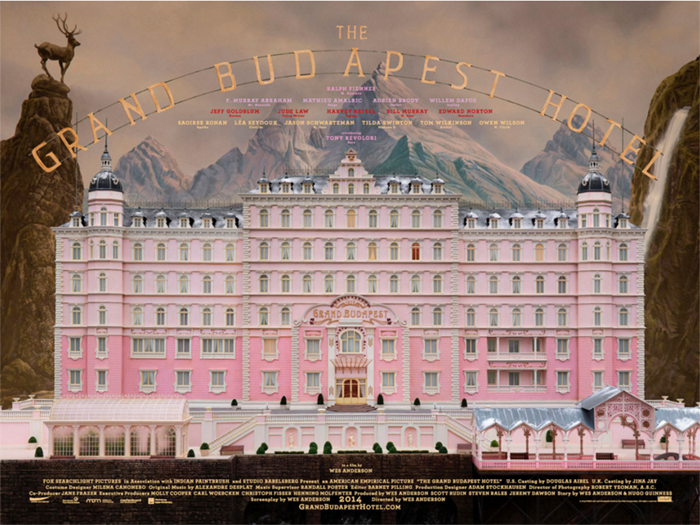
Movie poster for Grand Budapest Hotel
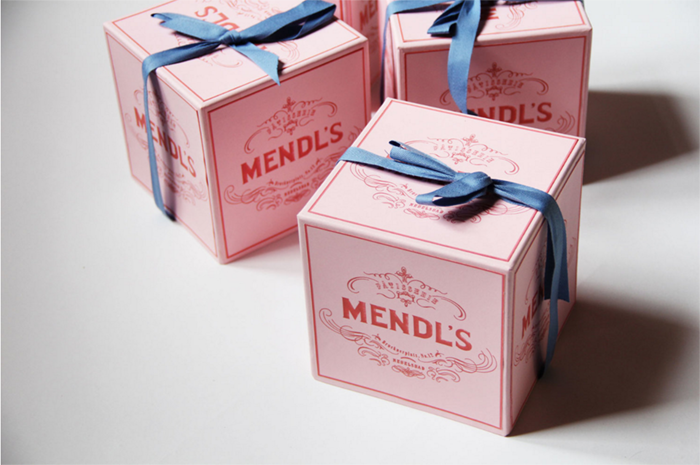
Box design for Mendl’s, Grand Budapest Hotel
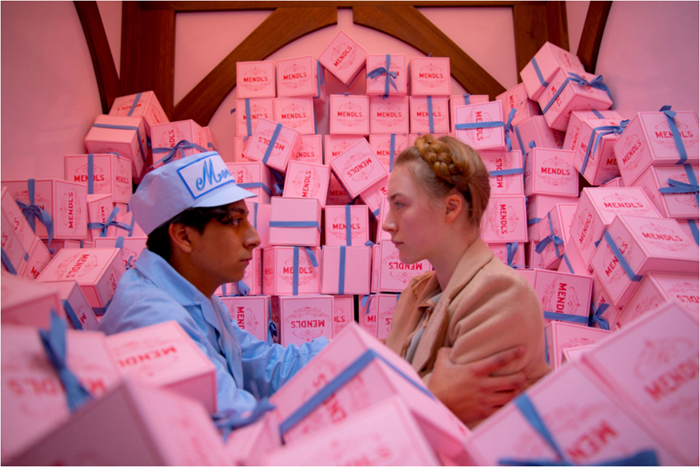
Scene with boxes in Grand Budapest Hotel
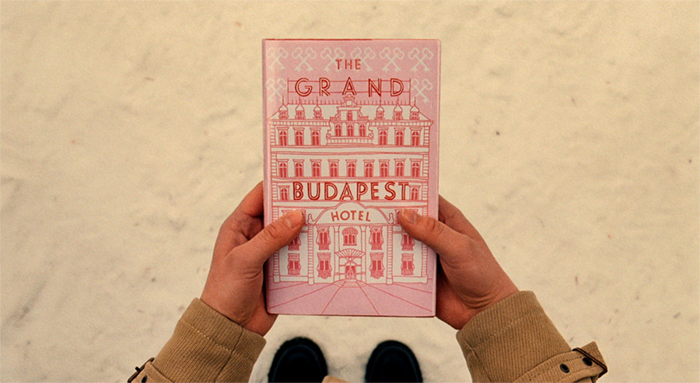
Design by Annie Atkins
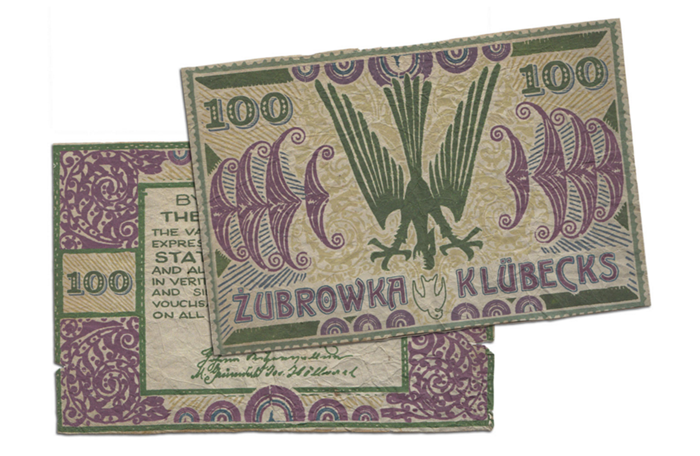
Fake money for Wes Anderson’s fictional country of Zubrowka
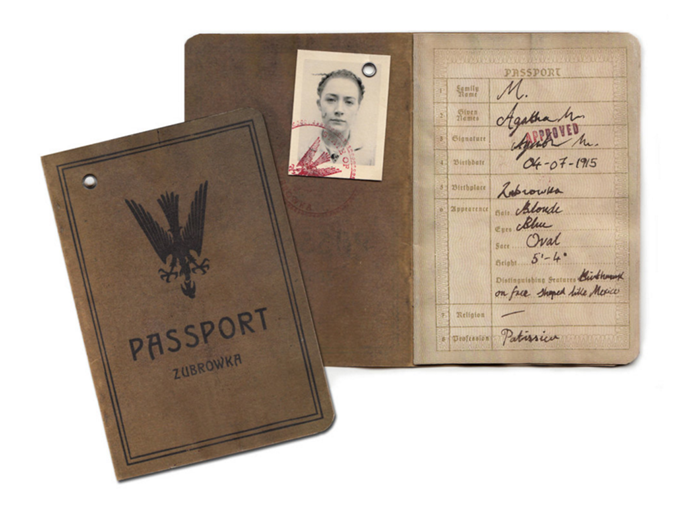
Fake passport for Zubrowka, Grand Budapest Hotel
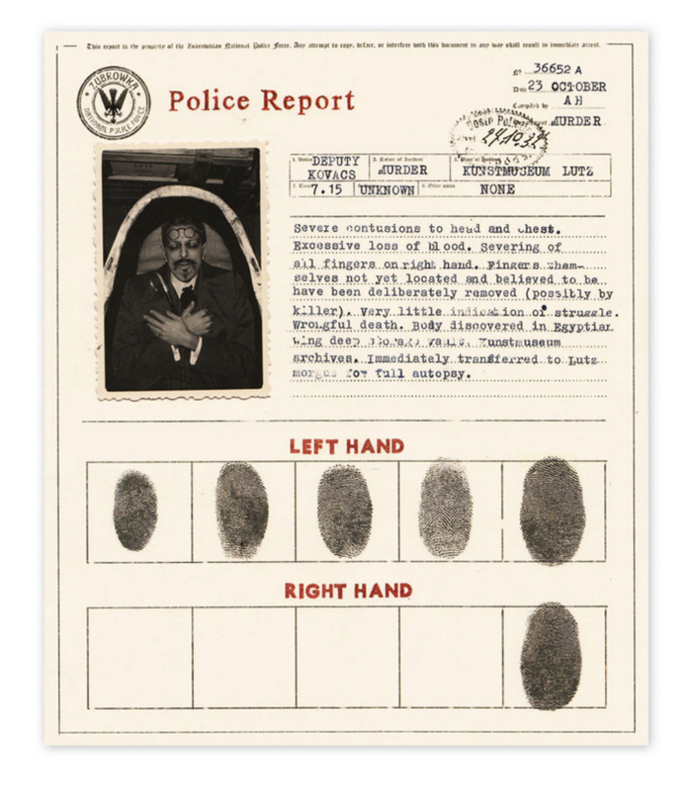

Fake police report, Grand Budapest Hotel
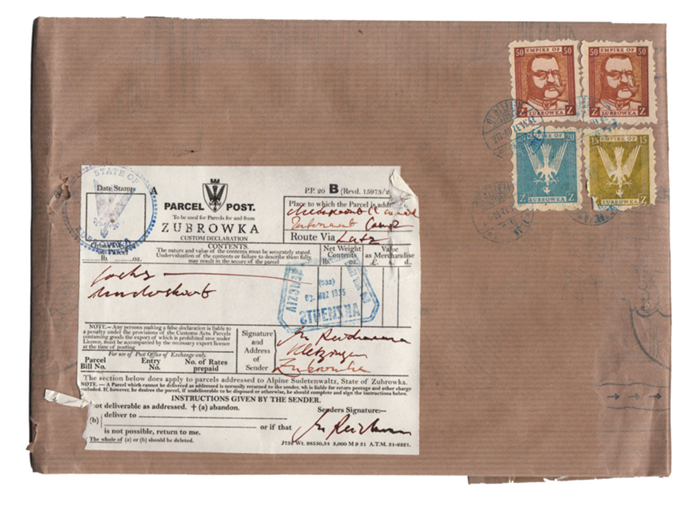

Fake stamps, packaging for Zubrowka, Grand Budapest Hotel
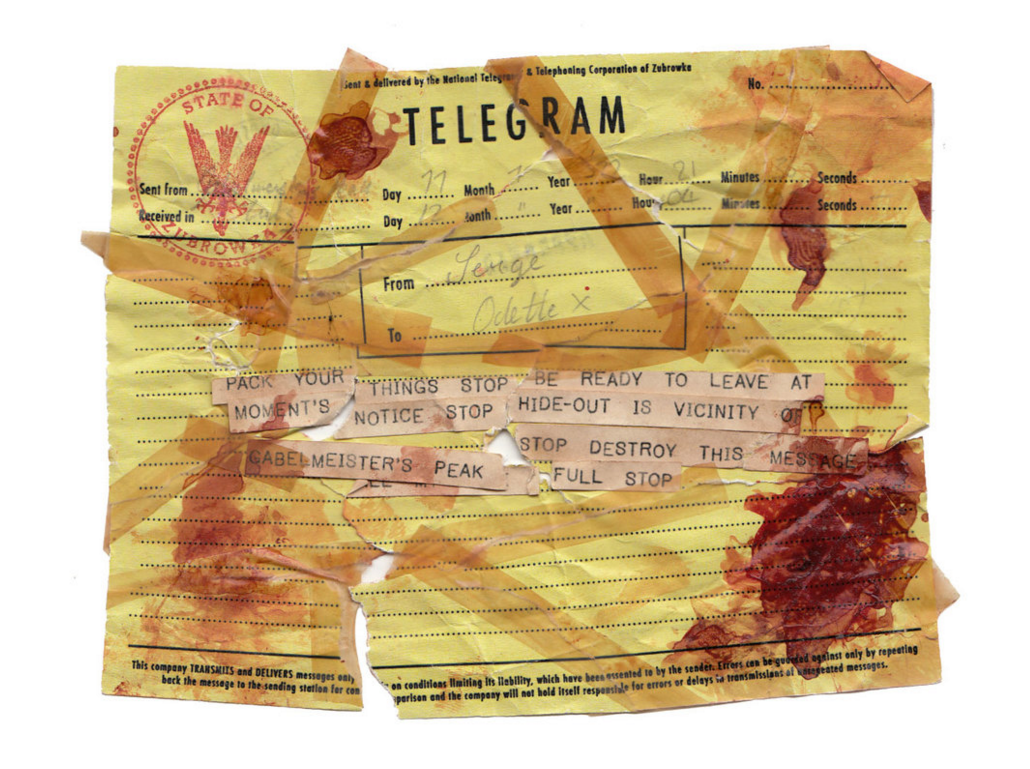

Fake telegram, Zubrowka, Grand Budapest Hotel
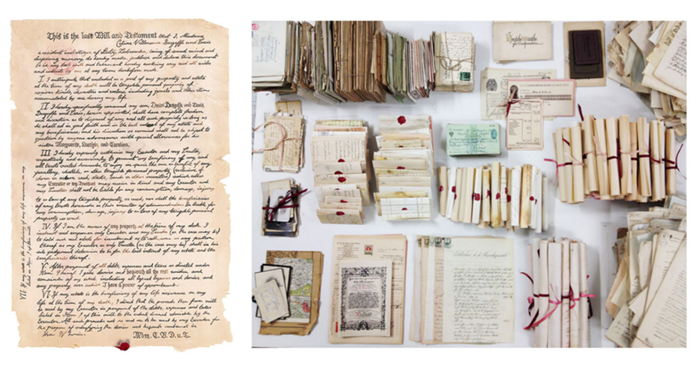

An assembly of the many movie props made by Annie Atkins for Grand Budapest Hotel
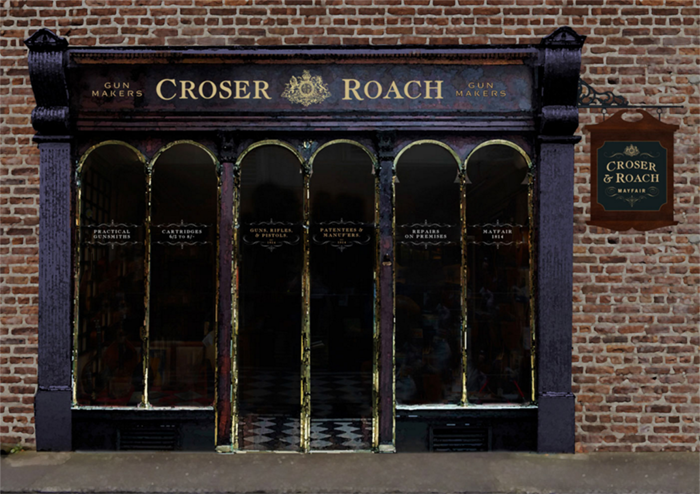
Storefront design by Annie Atkins for the TV series Penny Dreadful
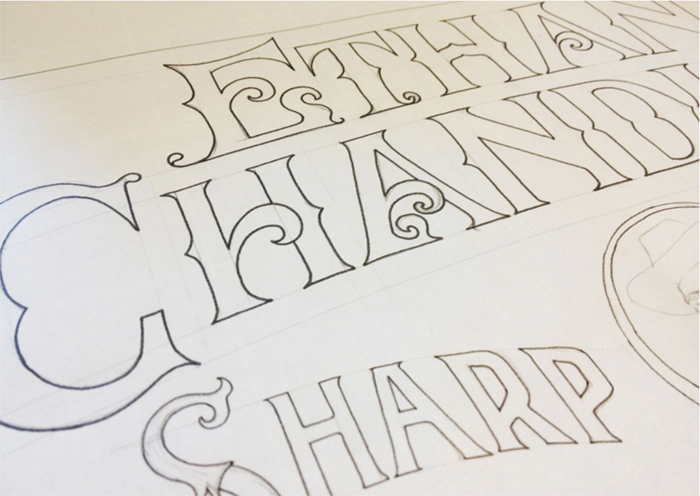
Typography by Annie Atkins for Penny Dreadful
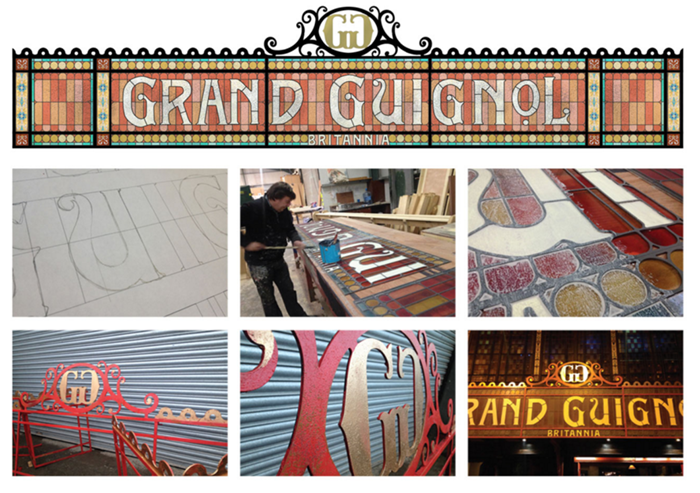
Fake storefront for Penny Dreadful
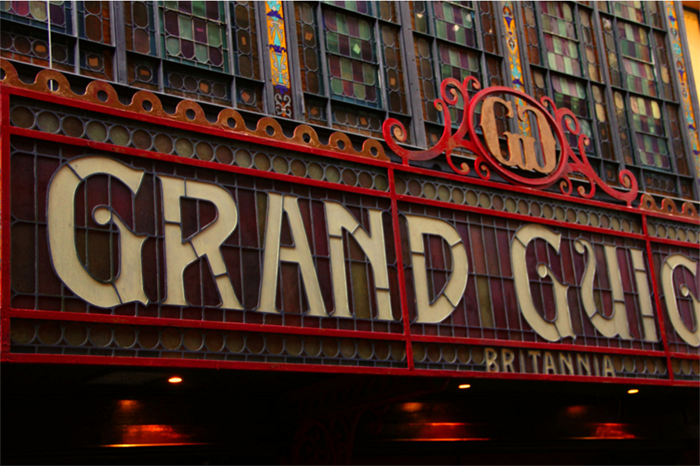
Fake storefront (installed, on set) for Penny Dreadful
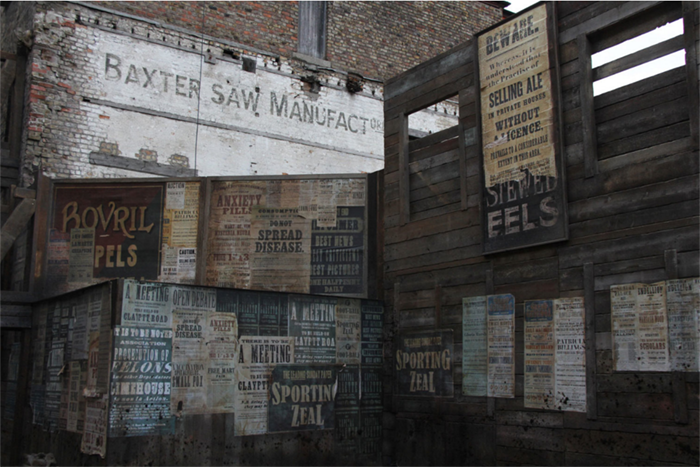
Magnificent alley posters for the set of Penny Dreadful
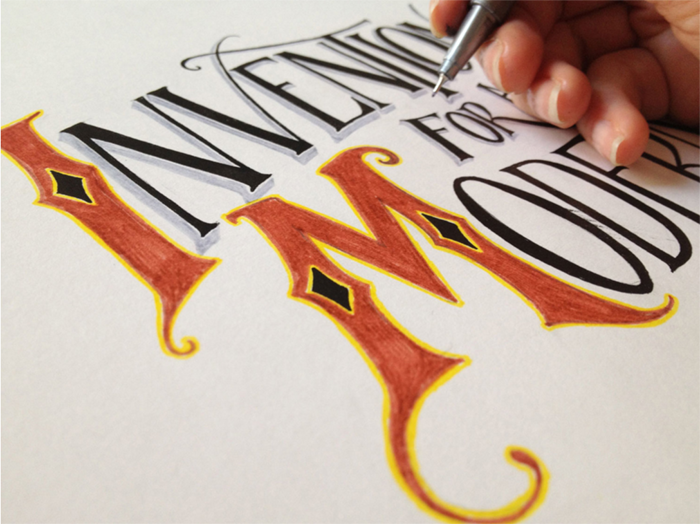

Typography for The Boxtrolls
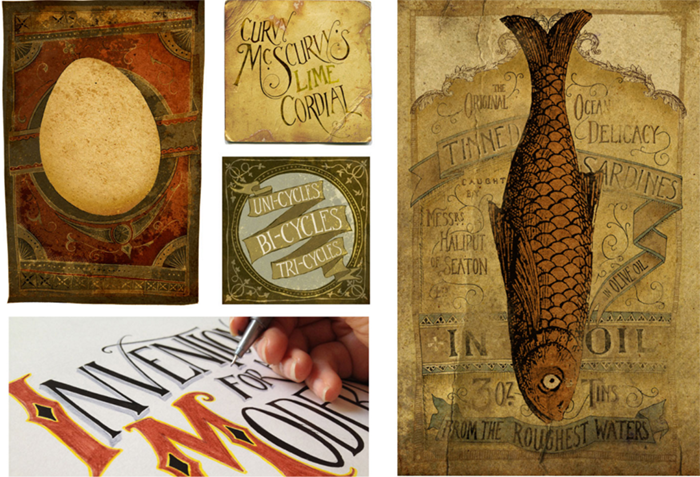

An assortment of props for The Boxtrolls by Annie Atkins
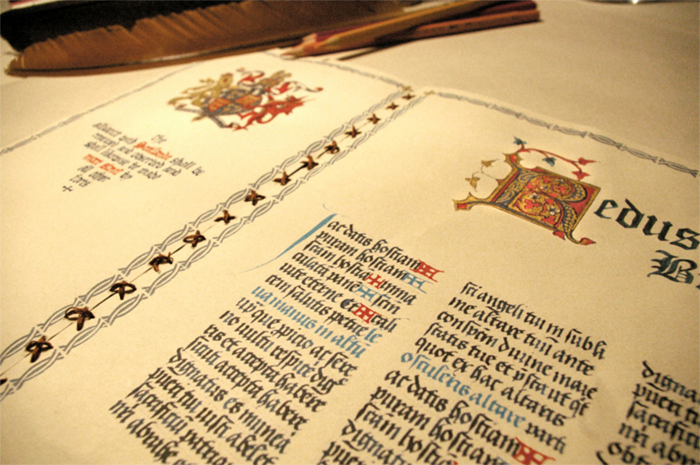
Ancient manuscript for The Tudors
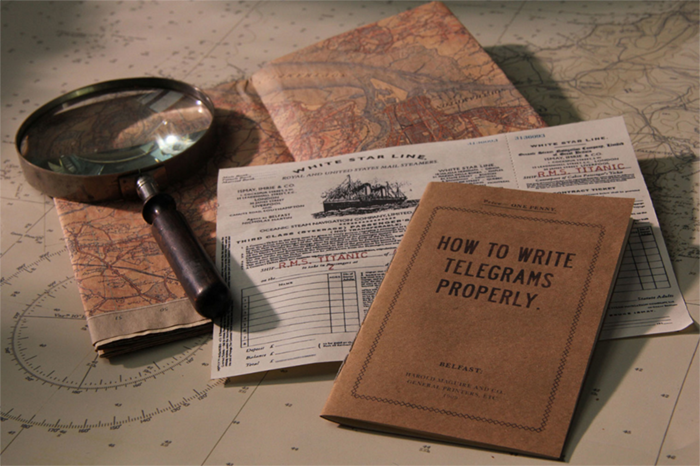
Movie props for the blockbuster film Titanic, by Annie Atkins
